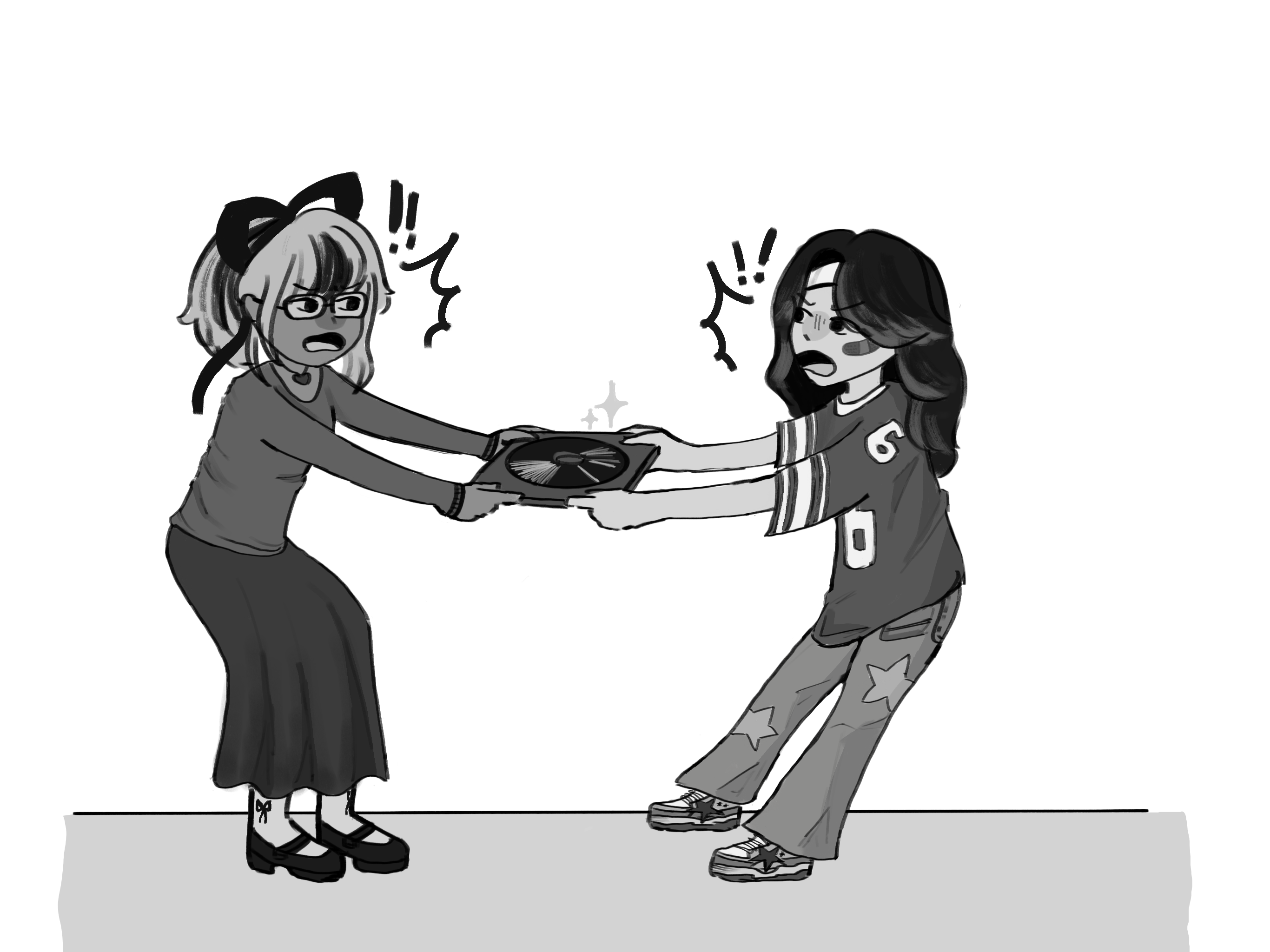The pitfalls of “die-hard” fandom
November, 2024
“If you can recognize these songs, you’re a real fan of Sabrina Carpenter,” reads an Instagram reel. At the 10 percent mark, a radio hit like “Espresso” plays, but the songs get progressively harder to recognize. By the 100 percent mark, an original fan is expected to know the “Girl Meets World” theme song from early on in Carpenter’s career. Other videos on social media made by these self-proclaimed “original fans” claim that “only true fans deserve tour tickets,” advocating for Ticketmaster’s Verified Fan system to include a test of fandom membership in order to prove “concert eligibility.” In today’s fandoms, simply enjoying an artist’s music isn’t enough to be considered a real fan — you now have to pass a series of loyalty tests to earn your place. The pressure to be considered a “true” fan has turned artists’ fanbases into exclusive clubs where entirely random criteria are more important than genuine appreciation.
In order to be considered a “true” fan, not only do you have to know the lyrics, but you have to know the meaning behind each verse, every milestone in the artist’s life, and even the outfits they wore at a specific concert. This leads to a contrived hierarchy, where long-time fans view themselves as superior to newer ones who may not yet be as familiar with the artist. This mentality is given the perfect opportunity to thrive on social media, which teenagers are heavily exposed to and influenced by. Through videos posted by die-hard fans that promote standards for belonging to the fandom, such as being able to understand a niche interview reference or an obscure childhood fact, students who only recently started liking an artist’s music feel as if they must know every possible detail in order to be considered a real fan.
The idea that only those who fit the criteria of a true fan should be able to join an artist’s fanbase significantly undermines the idea that a fandom should be about inclusivity and shared love for the artist’s music. When longtime fans create arbitrary standards of worthiness for newer fans to gain “entry” into the fandom, they cultivate an atmosphere that’s less based on celebrating and enjoying the artist’s work, and more about separating the true fans from the fake ones. In a space originally meant to bring people with a shared passion together, the concept of being a die-hard fan has become a weapon that pits fans against one another, creating a toxic space where only a select few get to claim ownership over the music they love.
The current concept of a “true” fan has significantly undermined the point of fandoms. By plaguing fanbases with arbitrary “tests” and pecking orders to prove worthiness of being part of the fandom, older fans are shutting out newer ones, stopping keeping fanbases from being inclusive spaces. This shift harbors a toxic environment where ownership over an artist’s work becomes a source of division that can tear these fan communities apart.
While many teenagers may feel pressured to conform to this culture, they, as the largest consumers of music, have the power to realign fandoms with their original value of unity. Superfans, in particular, have a responsibility to take a step back and recognize that just because they have been a fan of an artist longer than their classmates, it doesn’t mean they are automatically superior. By discouraging demeaning behavior toward newer fans and offering guidance instead of judgment, long-time fans can help cultivate a welcoming and supportive space. In doing so, fandoms can thrive as the communities of warmth and excitement we all want them to be.